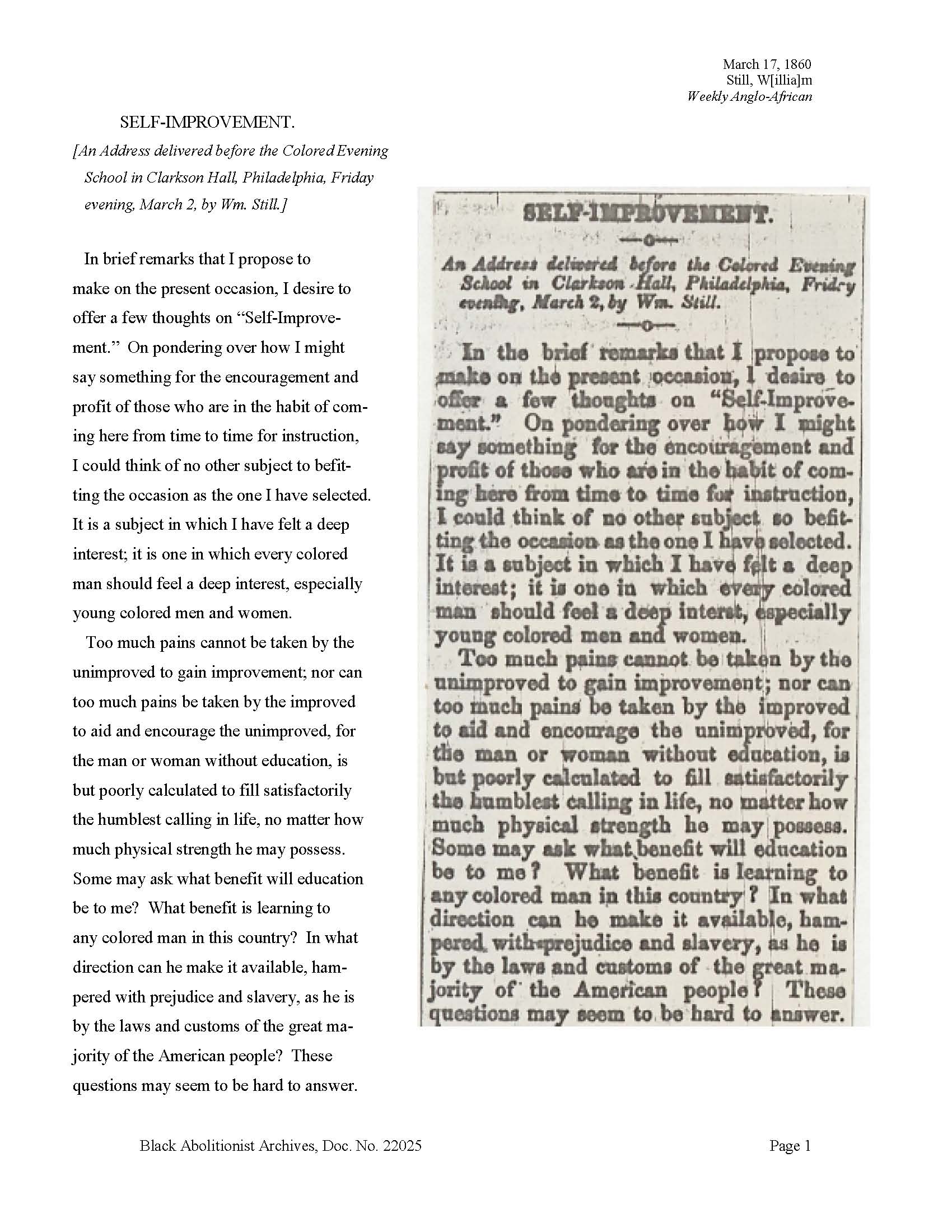William Still — Black Abolitionist
This month we celebrate Black History. As part of that celebration, our DVD of the week (titled “Underground Railroad: the William Still Story”) highlights a book by William Still. As it happens, William Still is one of my favorite Black Abolitionists. He is called an “unsung hero” and that he was. I’d wager that not too many people have heard of him. Yet his speeches, delivered during the late 1850s and early 1860s, are some of the most eloquent I’ve read.
The speech on Self-Improvement delivered in Philadelphia on March 2, 1860, is a great example. Still wasn’t the only abolitionist to emphasize self-improvement, but his words gained the attention of those who desperately sought a clear direction when the future seemed quite unclear. The south was poised to succeed from the Union (in April, 1860). Civil War would begin a little more than a year later.
And what should those who had fought so long and hard do once the possibility of their freedom was near? Some sought to just stay out of the way, not cause trouble, not be seen. But William Still (and others) urged “self-improvement” through education, a focus on religious standards, and a strong moral discipline. The ideas on education expressed then hold value even today: self-improvement, the potential for fulfillment in life, and the opportunity to gain an important place among the ranks of those who can look with dignity and pride at how much they have to offer the social world.
The Black Abolitionist Archive offers a wealth of history just waiting to be explored.
“There is a flow to history and culture. This flow is rooted and has its wellspring in the thoughts of people. People are unique in the inner life of the mind — what they are in their thought-world determines how they act. This is true of their value systems and it is true of their creativity. It is true of their corporate actions, such as political decisions, and it is true of their personal lives. The results of their thought-world flow through their fingers or from their tongues into the external world. This is true of Michelangelo’s chisel, and it is true of a dictatorís sword.“ (Francis A. Schaeffer, How Should We Then Live?)

